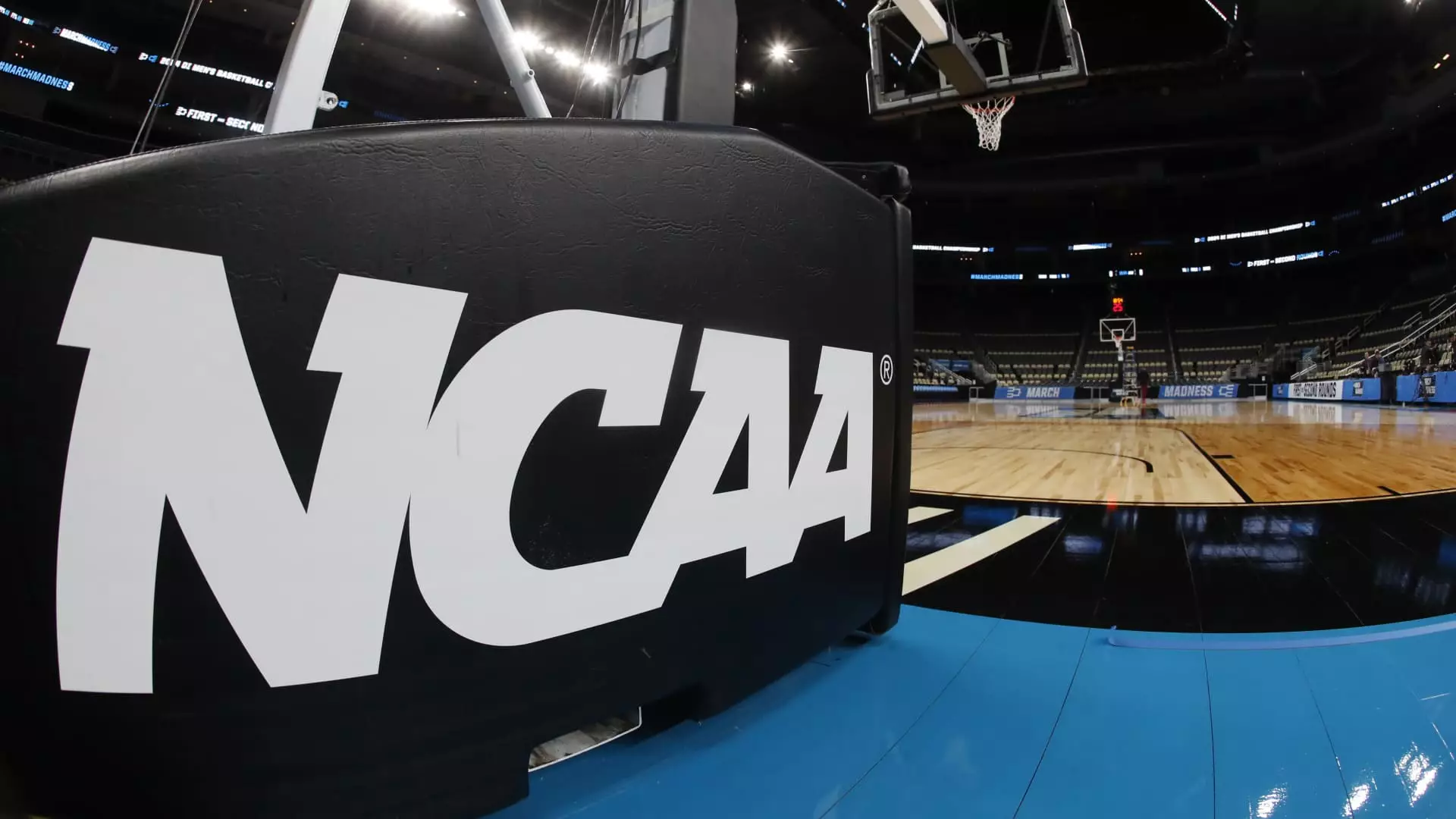On a pivotal day marked by political maneuvering and controversial policies, the National Collegiate Athletic Association (NCAA) announced a significant revision to its transgender student-athlete guidelines. This development came swiftly in the wake of President Donald Trump’s executive order aimed at defunding educational institutions that allow transgender women to compete in women’s sports. This article seeks to delve into the implications of this new policy, question its underlying motivations, and discuss its potential impact on the future of transgender inclusion in athletics.
The NCAA’s recent policy effectively bars individuals assigned male at birth from competing in women’s sports while still permitting them to practice with those teams and access related medical care. It introduces several stipulations which make it clear that only athletes assigned female at birth may compete on women’s teams—this includes those undergoing hormone therapy. The organization’s rationale is that this framework offers a uniform standard, alleviating the confusion stemming from differing state laws and judicial decisions regarding transgender rights in sports.
While the intent to establish a uniform standard is presented as a positive aspect, this policy sends a clear message: transgender women are not recognized as women in the context of competition. The idea that athletic eligibility should be determined based on one’s sex assigned at birth perpetuates a simplistic and outdated binary view of gender, ignoring the complexities and variations that exist within human identity.
Trump’s executive order serves as a significant backdrop to the NCAA’s decision. The push to legislate against the inclusion of transgender individuals in sports aligns with broader political strategies that seek to consolidate traditional views on gender and sexuality. The implications of such a stance are profound, extending beyond athletics into the realm of civil rights and social acceptance. The notion of a “national standard” prompted by the executive order symbolizes a top-down approach that disregards the rights and identities of transgender individuals, opting instead for a blanket policy that prioritizes political agendas over personal experiences.
This policy is not just a response to a perceived threat to women’s sports; it highlights a growing trend of politicizing transgender rights. The NCAA’s choice to adopt such a policy raises essential questions about the intersection of sports, identity, and governance, particularly in an environment increasingly hostile to LGBTQ+ rights.
Critics have responded fiercely to the NCAA’s policy shift. Notably, Chris Mosier, a transgender athlete and advocate, articulated that the emphasis on assigned sex at birth solidifies a binary perception of gender, thereby invalidating the experiences of non-binary and transgender individuals. Moreover, it could adversely affect intersex individuals and those undergoing hormone therapy for legitimate medical reasons.
The backlash from organizations such as GLAAD underscores the pervasive concern that the NCAA’s new guidelines are not grounded in scientific understanding or human rights principles. They argue that the decision is primarily a reactionary measure to the political climate shaped by the Trump administration, rather than a reflective, informed approach to inclusivity.
The ramifications of this policy extend far beyond the playing field. By institutionalizing discrimination against transgender women, the NCAA risks alienating a significant portion of the athlete population and diminishing the representation of diverse identities within sports. As the body governing intercollegiate athletics, the NCAA has a unique responsibility to foster an environment that accommodates all athletes, regardless of their gender identity.
Furthermore, such policies can influence cultural perceptions of gender and sexual identity, potentially setting a precedent for other organizations and institutions to follow suit. This could result in an entrenched culture of exclusion, where the participation of transgender athletes in sports becomes further marginalized.
The NCAA’s updated transgender athlete policy reflects a troubling disposition towards inclusivity within the sphere of athletics. It embodies a reductive approach that prioritizes political agendas over the rights and identities of individuals. As discussions surrounding gender identity and rights evolve, it is crucial for governing bodies to adapt policies informed by respect, science, and inclusivity rather than political rhetoric. The sporting world should strive to be a space where all athletes feel valued and recognized, not subjected to exclusionary practices that undermine their identities. The fight for inclusive athletics is far from over, and the community must continue advocating for policies that embrace diversity and equality in all forms.

